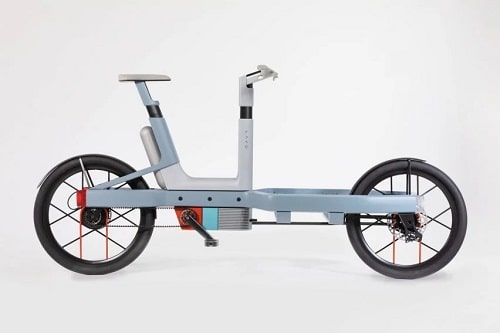It takes advantage of the higher energy-to-weight ratio offered by hydrogen fuel cells that are based on solar energy

To tackle climate change, immediate and relevant steps must be taken to bring down CO2 emissions and boost the widespread use of renewable energy sources.
The introduction of electric vehicles is a positive step in this direction. Several automotive companies and startups are providing these vehicles while R&D is also going to further enhance them.
One such company is the Dutch design office called Studio MOM who has collaborated with the Australian company LAVO, a provider of hydrogen energy storage solutions, to develop an e-bike that will be hydrogen-powered and carry heavy cargo over long distances without requiring heavy batteries.
Called the LAVO bike, the vehicle leverages the higher energy-to-weight ratio offered by hydrogen fuel cells, compared with the lithium batteries typically used for e-bikes.
With the help of solar energy, LAVO’s hybrid hydrogen battery operates. Using energy generated from photovoltaics, the process of electrolysis enables the extraction of hydrogen from water. The hydrogen is then absorbed into a patented metal hydride, which converts it into battery power.
This technique was first developed by researchers at the University of New South Wales, Australia.
“This first hydrogen bike in the world makes transport over very long distances possible without heavy batteries, particulates or CO2 emissions,” said Studio MOM.
The entire design of the LAVO bike has been built by joining modular frames that slot together, somewhat like Lego blocks.
“It’s designed as a toolkit for a new emission-free mode of transport,” said MOM studio. “Therefore, the concept is easily adapted from city bike to transport bike for small business use.”
The cargo e-bike can fully charge within 10 minutes and give a range of 150 km on a single charge.
“Long-range cargo solutions, in particular, require a lot of energy,” said MOM studio. “Then an extra hydrogen tank of 1.2 kilograms is surely preferable to an extra battery that weighs six kilograms.”
The LAVO bike is not currently on the market. But if everything goes as per plan, then we could see it being available by mid-2022.







